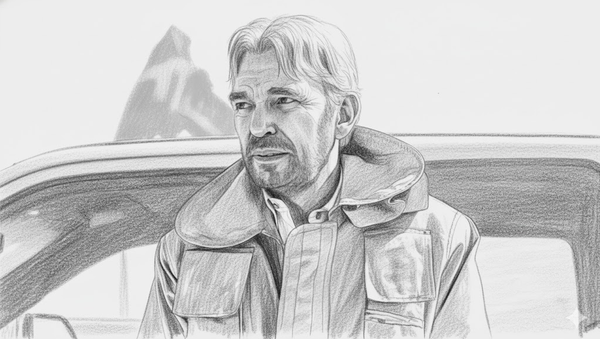The Critic in the Chair: A Guide to Overcoming Self-Criticism and Shame
There is a moment after a mistake that is unlike any other. The external world fades, and a new scene begins on the stage of your mind. A spotlight snaps on. In the center stands your blunder. And in a chair in the corner, a figure leans forward, clears their throat, and begins their indictment.
How many times have you found yourself in this courtroom of the mind?

The figure, your inner critic, is a master orator. Their voice is uncannily familiar, for it is your own, yet stripped of all warmth. It speaks not of what you did, but of what you are. “Incompetent,” it says. “A disappointment. Who did you think you were fooling?”
This internal prosecution is a private, harrowing experience, yet it is a near-universal one. Why are we so willing to say things to ourselves that we would never dream of saying to a friend? The answer lies in a powerful, often misunderstood emotion that governs our lives from the shadows: shame.
Dr. Brené Brown, who has spent two decades researching this emotion, offers a crucial distinction. Guilt, she explains, is the feeling of “I did something bad.” It can be healthy; it nudges us to make amends. But shame is the intensely painful feeling of “I am bad.” It doesn't target our actions; it targets our very self. Shame is a force of paralysis, and it is the fuel that feeds the inner critic.
The critic’s job is to whip us into a state of perfection to avoid the searing pain of judgment. This dynamic is the engine behind many of our modern afflictions, showing up in scenarios you might recognize all too well:
- At Work (Impostor Syndrome): You receive praise for a successful project, but instead of pride, you feel a jolt of anxiety. "I got lucky this time," the critic whispers. "Next time, they'll find out I'm a fraud."
- In Creativity (Perfectionism): You have a brilliant idea for a book or a new business, but you spend months endlessly researching and planning. The fear of producing something flawed is so great that you never actually start.
- In Parenting (The Comparison Trap): You see another parent's seemingly perfect family on social media and the critic chimes in: "You're not patient enough. You're not doing enough. You are failing your children."
If shame is the poison, what is the antidote? According to Dr. Kristin Neff, a pioneering researcher, the answer is self-compassion. It is not self-pity or self-esteem. It is a way of relating to ourselves with kindness, especially when we are suffering. Dr. Neff breaks it down into three actionable components.
Interactive Moment: What's Your Critic's Go-To Line?
Take a moment to notice. When you make a mistake, what does your inner critic typically say to you? Is it a single word ("Stupid")? A phrase ("You always mess things up")? Recognizing the script is the first step to changing it.
The Three Pillars of Self-Compassion
1. Self-Kindness vs. Self-Judgment
This means actively choosing to be gentle with yourself. It is the practice of replacing the harsh internal monologue with one of warmth and support.
- Before (The Critic): "How could you be so stupid? You ruined everything."
- After (Self-Kindness): "That was a really difficult situation, and you did the best you could. It’s okay to make mistakes; everyone does."
2. Common Humanity vs. Isolation
This component strikes at the very heart of shame, which thrives on making us feel utterly alone. Common humanity is the recognition that suffering and failure are part of the shared human experience.
- Before (The Critic): "No one else messes up like this. There is something uniquely wrong with you."
- After (Common Humanity): "This feels awful, but I'm not alone in this. Failure is a part of life for everyone. This connects me to others rather than separating me."
3. Mindfulness vs. Over-Identification
Mindfulness is observing our negative thoughts and emotions with perspective, without getting swept away by them. It is finding the balance between suppressing pain and drowning in it.
- Before (The Critic): (A small mistake happens, and you're consumed by a storm of self-loathing) "I am a total failure. My life is a disaster."
- After (Mindfulness): (You observe the feeling without judgment) "I'm noticing a strong feeling of shame right now. This is a moment of suffering." This act of naming creates space and reduces the emotion's power.
Your First Steps to a Kinder Inner Dialogue
Cultivating self-compassion is a practice, not a destination. It begins with small, intentional acts. Here is how you can start today.
- Practice a Compassionate Pause. The next time you feel the sting of self-criticism, physically pause. Place a hand over your heart, feel the warmth, and take a deep breath. Acknowledge the pain by saying to yourself, "This is hard right now. It's okay."
- Rephrase Your Self-Talk. Imagine what you would say to a dear friend in the same situation. Then, try directing that same compassionate language toward yourself. It will feel unnatural at first. Do it anyway.
- Create a "Mistake Mantra." Develop a short phrase to use when you mess up. Instead of an automatic "I'm so dumb," try something like, "A mistake is a lesson, not a life sentence," or simply, "I am learning."
- Write a Compassionate Letter. Write a letter to yourself from the perspective of a loving, unconditionally accepting friend. Describe the situation you're judging yourself for, and then write what this friend would say to you. Read it back to yourself whenever the critic gets loud.
A Challenge to Start Today:
For the rest of today, your only goal is to notice your inner critic without judgment. Don't fight it, don't argue with it. Just notice when it shows up and what it says, as if you were a scientist observing a phenomenon. Awareness is the dawn of change.
The critic in the chair will likely never leave the stage entirely. But you can change your relationship to it. You can learn to see it not as the voice of truth, but as a misguided protector, armed with the wrong tools. You can thank it for its concern, and then kindly choose to listen to a different voice—a quieter, warmer one that speaks of kindness, connection, and the simple, profound courage of being imperfectly, resiliently human.



